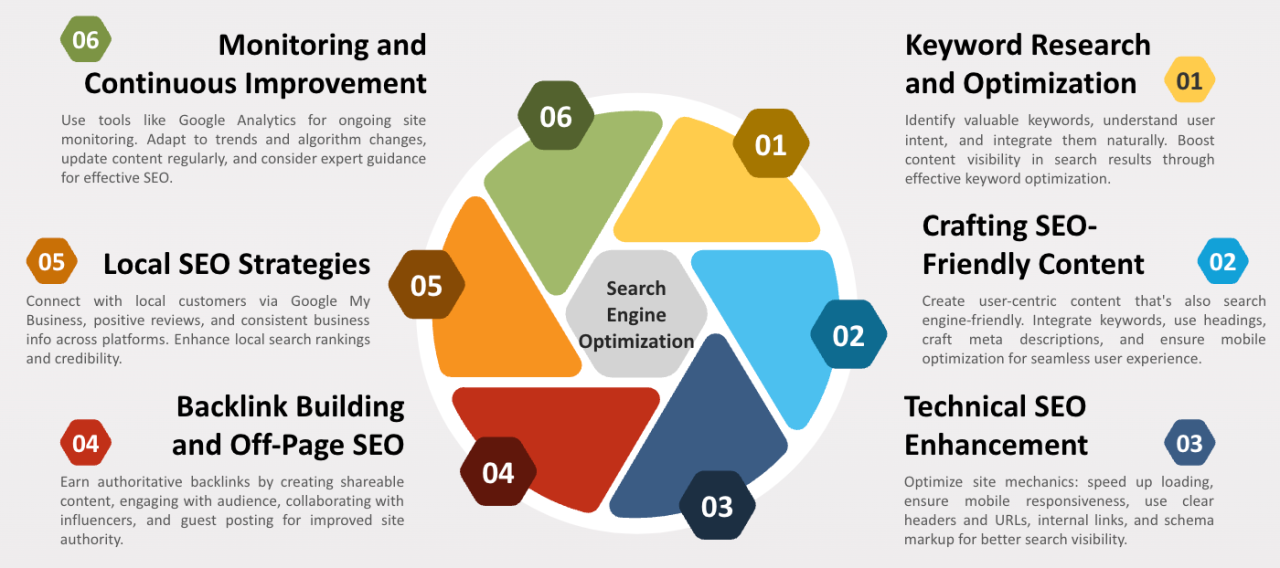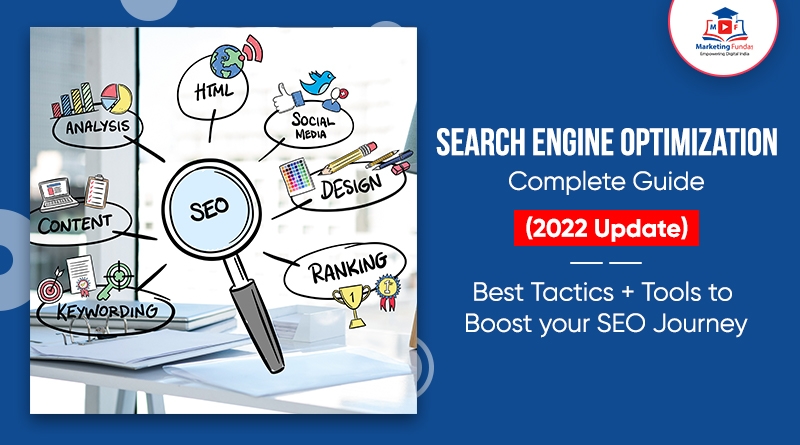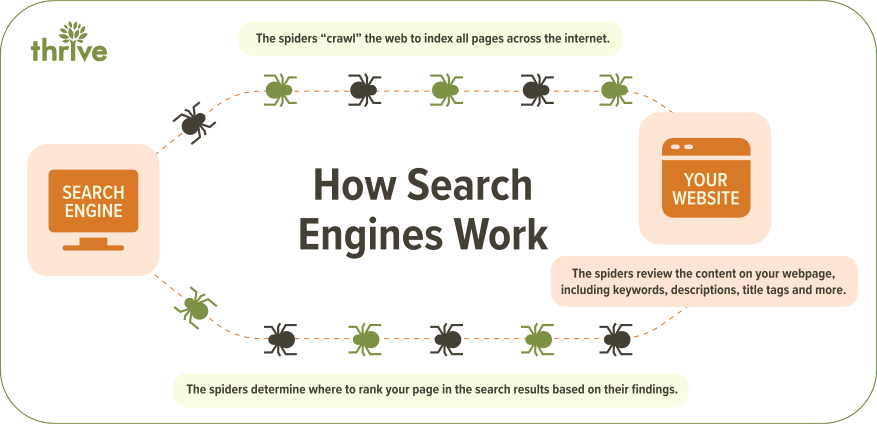![]()
Thank you for reading this post, don't forget to subscribe!
Uncover the secrets to skyrocketing your website’s traffic with these essential SEO strategies that will revolutionize your online presence.

Image courtesy of via DALL-E 3
Table of Contents
- Introduction to SEO
- Understanding How Search Engines Work
- Keywords: The Building Blocks of SEO
- Creating Content for Your SEO Site
- On-Page SEO Optimization
- Off-Page SEO: What’s That?
- Technical SEO Made Simple
- Improving Site Speed for Better SEO
- Tracking Your SEO Progress
- SEO Mistakes to Avoid
- Hiring SEO Services: When to Call in the Pros
- Conclusion: You’re on Your Way to Great SEO!
Introduction to SEO
Welcome, young reader! Today, I’m going to introduce you to the fascinating world of SEO. But wait, what exactly is SEO? Well, SEO stands for Search Engine Optimization. It’s like a special code that helps people find your website when they search for things on the internet. Imagine it as a secret key that unlocks the door to your website for others to see!
What is SEO?
SEO is all about making your website more visible to people who are searching for something online. Just like how you use a map to find your favorite ice cream shop, SEO helps search engines like Google find your website and show it to others who are looking for what you have to offer. It’s like putting a spotlight on your site so that more people can discover it!
Why is SEO Important?
Good SEO is crucial because it helps your site stand out in a sea of websites on the internet. Imagine you have a lemonade stand, but it’s hidden in a forest where no one can see it. That’s where SEO comes in – it’s like putting up bright signs pointing the way to your stand so that more customers can find you. The better your SEO, the easier it is for people to find and visit your website!
Understanding How Search Engines Work
When you search for something on the internet, have you ever wondered how search engines like Google know which websites to show you? Let me break it down for you!
What Search Engines Do
Search engines are like giant libraries filled with information from all the websites on the internet. They use special programs called crawlers to scan through these websites and gather data. These crawlers look at things like keywords, website structure, and content to understand what each site is about.
Why Some Websites Show Up First
Ever noticed that some websites appear at the top of search results while others are buried on page three? Well, that’s because search engines use complex algorithms to determine the relevance and authority of websites. Websites that have relevant keywords, high-quality content, and lots of other sites linking to them tend to rank higher. So, the next time you search for something, remember that the first results are there for a reason!
Keywords: The Building Blocks of SEO
Keywords are like magic words that help people find what they are looking for on the internet. In the world of SEO, which stands for Search Engine Optimization, keywords play a crucial role. They are the words or phrases that users type into search engines like Google when they are looking for something.

Image courtesy of www.linkedin.com via Google Images
How to Choose the Right Keywords
Choosing the right keywords is essential to make sure that your website shows up when people search for things related to your content. To select the best keywords for your site, think about what words people would use to find the information or products you offer. Put yourself in their shoes and consider what terms they would type into the search bar.
It’s also helpful to do some research to see which keywords are popular and relevant to your content. There are tools available that can help you find the most effective keywords for your site. By selecting the right keywords, you can increase the chances of your website appearing higher in search engine results and attracting more visitors.
Creating Content for Your SEO Site
When creating content for your SEO site, it’s essential to keep in mind the dual purpose it serves: providing valuable information to your readers and boosting your site’s visibility on search engines like Google. By crafting content that is both engaging and optimized for SEO, you can attract more visitors and improve your site’s ranking. Here are some tips to help you write great content that performs well in search results.
Writing Great Content
Effective content is tailored to your target audience, easy to read, and provides valuable information. Consider what your readers are looking for and create content that addresses their needs and interests. Use clear and concise language, break up your text with headings and bullet points, and make sure your content is well-organized.
Making Your Content SEO-Friendly
Optimizing your content for SEO involves more than just adding keywords. While keywords are crucial for helping search engines understand what your content is about, it’s equally important to focus on readability and user experience. Incorporate keywords naturally throughout your content, use meta tags to provide additional information to search engines, and ensure your content is easy to navigate.
By striking the right balance between creating valuable content and optimizing it for search engines, you can enhance your site’s visibility and attract more visitors.
On-Page SEO Optimization
When it comes to optimizing your website for search engines, it’s essential to focus on on-page SEO. This means making sure that each individual page on your site is set up in a way that search engines can easily understand and index. Let’s dive into some key strategies for on-page SEO optimization.

Image courtesy of www.marketingfundas.com via Google Images
Title Tags and Meta Descriptions
Title tags and meta descriptions are crucial components of on-page SEO. Your title tag is the clickable headline that appears on search engine results pages, while the meta description is a brief summary of the page content. It’s important to include relevant keywords in both the title tag and meta description to improve visibility and click-through rates.
Using Headings Properly
Headings, such as H1, H2, and H3, help organize your content and make it more readable for both users and search engines. When creating headings, be sure to include relevant keywords to signal to search engines what your page is about. Proper use of headings can also improve the overall structure and organization of your content, making it easier for visitors to navigate your site.
Off-Page SEO: What’s That?
Backlinks are like recommendations from other websites that tell search engines your site is trustworthy and valuable. When reputable websites link to yours, it can boost your SEO rankings. Think of it as getting a gold star from a popular kid in school – it makes others notice you more!
Social Media and SEO
Social media isn’t just for sharing cute cat videos; it can also help your SEO efforts. When you’re active on platforms like Facebook, Instagram, or Twitter, and people engage with your posts by liking, sharing, or commenting, it tells search engines that your content is worth showing to others. So, by being social online, you’re actually improving your SEO. It’s like making new friends and having them spread the word about how cool you are!
Technical SEO Made Simple
When it comes to SEO, there’s more to it than just writing great content and using the right keywords. Technical SEO is like the hidden superpower of your website – it’s what makes sure search engines can easily find and understand your site so they can show it to people searching online. Let’s dive into some key aspects of technical SEO in a way that’s easy to understand.

Image courtesy of www.overthetopseo.com via Google Images
Site Structure and Navigation
Imagine your website is like a book, and site structure is the table of contents that helps readers navigate through it. A clear and organized structure not only makes it easier for visitors to find what they’re looking for but also helps search engines crawl and index your pages more effectively. So, make sure your website is well-structured with logical categories and easy navigation links.
Mobile-Friendliness
Nowadays, more and more people use their smartphones and tablets to browse the web. That’s why it’s crucial for your website to be mobile-friendly, meaning it should look and work well on smaller screens. Google even gives priority to mobile-friendly sites in its search results, so optimizing your site for mobile devices is a must for SEO success.
Improving Site Speed for Better SEO
Site speed refers to how quickly your website loads when someone clicks on a link to visit it. It’s like the speed at which a race car zooms around a track – the faster it goes, the more exciting the race is for viewers. Similarly, when your website loads quickly, visitors are more likely to stay and explore, leading to better user experience and higher chances of them coming back for more. Plus, did you know that search engines like Google prefer websites that load fast? A speedy site can boost your SEO ranking, helping your website show up higher in search results. So, it’s essential to make sure your site is like a well-oiled machine, running smoothly and swiftly.
Simple Tips to Speed Up Your Site
Now that you understand the importance of site speed let’s look at some easy ways to make your website load faster:
1. Optimize Images: Large image files can slow down your site. Compress or resize images before uploading them to your website to reduce loading times.
2. Minimize Plugins: While plugins can add cool features to your site, having too many can bog it down. Remove any unnecessary plugins to streamline your website’s performance.
3. Enable Browser Caching: Browser caching stores some website data in a visitor’s browser, so when they revisit your site, it loads faster. This can significantly speed up load times for returning visitors.
4. Clean Up Your Code: Messy code can slow down your site. Make sure your website’s code is clean and efficient to help it run smoothly and swiftly.
5. Use a Content Delivery Network (CDN): A CDN helps distribute your website’s content across multiple servers worldwide. This ensures that visitors receive data from the server nearest to them, reducing load times.
By incorporating these simple tips into your website maintenance routine, you can enhance your site speed, improve user experience, and boost your SEO ranking – making your online presence both speedy and successful!
Tracking Your SEO Progress
Once you’ve implemented SEO strategies on your website, it’s important to track how well they’re working. There are various tools available that can help you monitor your SEO progress. Google Analytics is a popular choice that provides insights into your website traffic, user behavior, and keyword performance. Another useful tool is Moz Pro, which offers features like keyword research, site audits, and rank tracking to help you optimize your site for search engines.

Image courtesy of firstpagesage.com via Google Images
Understanding SEO Reports
SEO reports are essential for gauging the effectiveness of your optimization efforts. These reports provide valuable data on key metrics such as organic traffic, keyword rankings, backlink profiles, and more. By reviewing these reports regularly, you can identify trends, track your progress over time, and make informed decisions to improve your SEO strategy. Understanding and analyzing these reports will empower you to make data-driven decisions that drive better results for your website.
SEO Mistakes to Avoid
Keywords are essential for SEO because they help search engines understand what your content is about. However, using too many keywords can actually hurt your site’s SEO. When you stuff your content with keywords, it can make your writing sound unnatural and spammy, which can turn off readers. Search engines also penalize websites that engage in keyword stuffing, so it’s best to use keywords strategically and naturally throughout your content.
Ignoring User Experience
While keywords are important for SEO, it’s equally crucial to prioritize the overall user experience of your website. If visitors have a hard time navigating your site, finding information, or accessing your content, they are likely to leave quickly. High bounce rates and low time spent on your site send negative signals to search engines, which can lower your site’s rankings. To improve user experience and boost SEO, focus on creating a user-friendly website design, fast loading times, and valuable, engaging content that meets the needs of your audience.
Hiring SEO Services: When to Call in the Pros
As you continue to work on improving your website’s SEO, you may reach a point where you realize that you need some extra help. This is where hiring professional SEO services can make a big difference in boosting your online presence. Let’s dive into the reasons why and how to find the right SEO company for your needs.

Image courtesy of thriveagency.com via Google Images
What SEO Services Can Do for You
Professional SEO services are experts in optimizing websites to rank higher on search engine results pages. They have the knowledge and tools to analyze your site, identify areas for improvement, and implement strategies to increase visibility and traffic. From keyword research to content optimization and link building, SEO services can provide a comprehensive approach to enhancing your online presence.
Finding the Right SEO Service
When looking for an SEO company to work with, it’s essential to do your research. Look for a company with a proven track record of success, transparent communication, and a clear understanding of your business goals. Ask for case studies or testimonials to gauge their level of expertise and results. Additionally, make sure to discuss your expectations, timeline, and budget upfront to ensure a good fit for both parties.
Conclusion: You’re on Your Way to Great SEO!
After learning all about SEO basics, Google SEO optimization, and how to kickstart your site’s SEO, you are well on your way to great search engine optimization. By understanding the importance of SEO, how search engines work, the role of keywords, creating SEO-friendly content, optimizing on-page and off-page elements, and keeping track of your progress, you have all the tools you need to succeed.
Remember, SEO is an ongoing process that requires dedication and effort. But with the knowledge you’ve gained, you can start making positive changes to your website that will help it rank higher on search engine results pages.
As you continue to apply what you’ve learned about SEO, don’t forget to keep an eye on your site’s speed, avoid common SEO mistakes, and consider hiring SEO services if and when you need expert assistance. With these strategies in place, you’ll be well on your way to boosting your site’s visibility and attracting more visitors.
So, go ahead and put your newfound knowledge into practice. Start implementing the SEO basics on your website today and watch as your site’s performance improves. Good luck on your SEO journey!
Get Your Free SEO Report Now.
GET YOUR WEBSITE Seo Report
About us and this blog
We are a digital marketing company with a focus on helping our customers achieve great results across several key areas.
Request a free quote
We offer professional SEO services that help websites increase their organic search score drastically in order to compete for the highest rankings even when it comes to highly competitive keywords.
Subscribe to our newsletter!
More from our blog
See all postsRecent Posts
- Boost Your Pagerank with Proven SEO Tips April 2, 2024
- SEO Cheat Sheet: Top Google Tips April 2, 2024
- Boost Sales with Google SEO Optimization April 2, 2024










